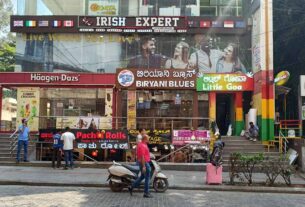Taking note of ground realities and challenges faced by citizens, NHRC emphasized that the centre and states need to “put its acts together” to meet the ongoing COVID-19 challenges.
Delhi: The National Human Rights Commission (NHRC) has called for an Action Taken Report (ATR) within four weeks from various state chief secretaries and the secretary of the union health and family welfare ministry on the recommendations issued as part of its COVID-19 Advisory 2.0 report, said the commission.
The Advisory 2.0, sent by Bimbadhar Pradhan, secretary-general of NHRC on May 4, 2021, called upon both the states and the centre to set up a COVID-19 dashboard where real-time information on the availability of hospital beds, COVID-19 essential medicines, and oxygen amongst other things is present and regularly updated. Apart from this, it called for immediate action against those black-marketing and the hoarding of such items.
Shreya Sharma, a student from Ghaziabad, said, “When my father got admitted, he was the last person to get a bed in the hospital. Out of the 15-17 days when he was there, he spent about five or more days on a foldable metal cot which caused him immense back pain.”
Dr. Raman Sharma, a private practitioner in Delhi said, “Since I am consulting online, a lot of patients ask me if I can arrange medicines or any other equipment from other doctors or pharmacists, but the truth is that I am not even in a position to arrange anything for myself.”
The Ministry of Health and Family Welfare communicated through multiple press releases that it has taken a number of steps to ensure a steady supply of oxygen, vaccines, COVID-19 essential drugs like Remdesivir, and the necessary equipment to ramp up the infrastructure capabilities of the healthcare sector to incorporate as many patients as they possibly can.
The National Human Rights Commission was set up in 1993 for the promotion and protection of the human rights of citizens of India. Under section 2 (1) (d) of the Protection of Human Rights Act, human rights are defined as the rights relating to life, liberty, equality, and dignity of any individual.
The NHRC advisory laid out a wide set of recommendations on issues varying from clinical and containment zone management, community engagement and responsiveness, to the creation of enabling conditions for better access to covid care.
India recorded about 3.07 lakh cases and 3443 deaths as of 9 pm on May 11, 2021, according to covid19india.org, a crowd-sourced COVID-19 database.
Dr. Dipak Pal, an epidemiologist at the All India Institute of Hygiene and Public Health mentioned that Non-Governmental Organizations (NGOs) and civil society groups can also play an important role along with the government and people in managing the ongoing crisis. “They can spread awareness on things like wearing masks, maintaining distance, washing hands, and not crowding public places. Similarly, they can urge more people to get tested and provide ready information for local hospitals and labs.”
He added that usage of technology to create dashboards has helped in maintaining accountability in the system.




